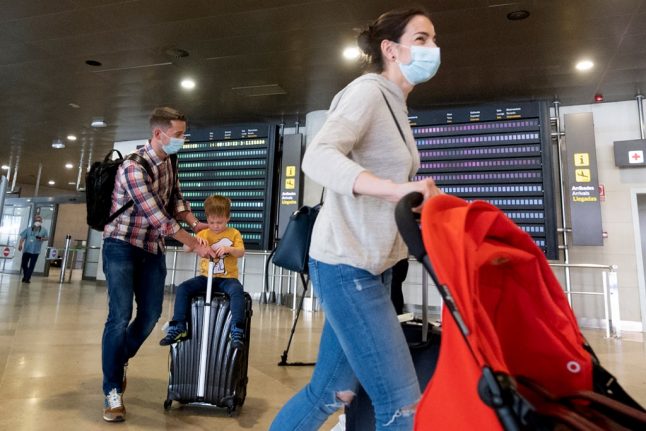The move was taken to prevent the spread of a new strain of coronavirus that has been identified in the south of England is is believed to be much more contagious than the other strains of Covid-19.
South Africa is also included in the ban, as the new virus variant is spreading through that country as well.
The Federal Council has introduced a general entry ban from today for all foreign nationals seeking to enter Switzerland from the UK and South Africa. This is intended in particular to stop travel from these countries for tourism purposes.
“All persons who have entered Switzerland from these two countries since 14 December must go into quarantine for 10 days”, the Federal Council said in a statement.
Switzerland's Federal Office of Civil Aviation (FOCA) suspended air links between the UK and Switzerland from midnight Sunday.
READ MORE: TRAVEL: Switzerland suspends flights with UK over new Covid strain
However, a temporary derogation from the flight ban is being considered for persons resident in the UK or South Africa currently staying in Switzerland so that they may return home, authorities said.
“That is also the case for persons resident in Switzerland currently staying in those two countries. However, it is imperative that such return journeys do not lead to infections”.
South Africa is also included in the ban, as the new virus variant is spreading through that country as well.
“The new strain is significantly more contagious than the known kind,” FOCA said in a press release on Sunday.
More than 60 flights from the UK — bringing an estimated 10,000 tourists —landed at the Geneva airport this weekend before the ban was introduced, RTS public broadcaster reported.
Switzerland also immediately withdrew freedom of movement privileges from British nationals, which were due to expire at the end of year in any case, as Britain leaves the European Union.
“Persons from the UK are therefore subject to a general ban on entering Switzerland,” it said.
The government added: “No cases of the new strain have so far been identified in Switzerland.”



 Please whitelist us to continue reading.
Please whitelist us to continue reading.
Member comments